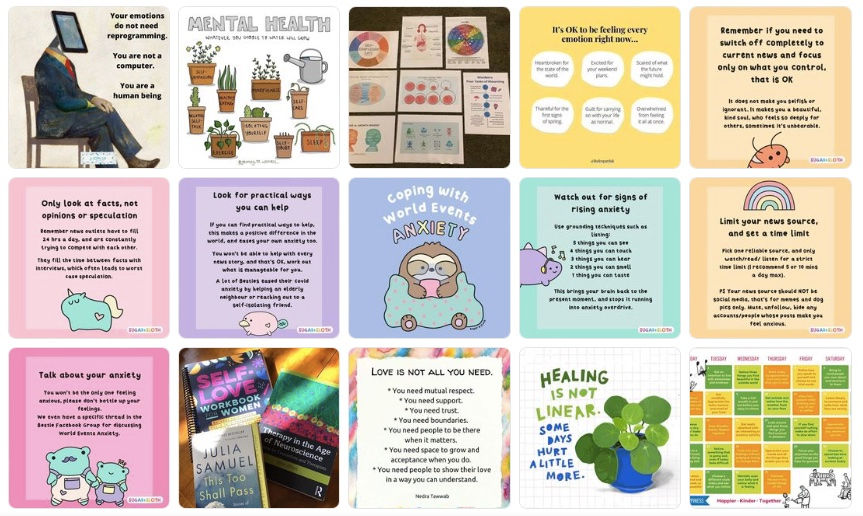- Julian & Michaela

- Jul 6, 2022
Here is a very comprehensive and simply presented list of some great ways you can take control over your mental health and sense of well-being:

Some of the suggestions are very specific, like 'staying hydrated' or 'not overbooking yourself'. Others refer to life-style changes such as 'making time for hobbies', 'trying new things' or 'getting enough sleep'. There's quite a lot here as well to do with personal relationships: for example 'setting boundaries with yourself and others' and 'communicating your needs'.
This is just the kind of guidance we might offer to clients who are dealing with problems of anxiety, low mood and poor self-esteem. They add up to a great check list of strategies for anyone looking to reduce the stress in their lives and feel better about themselves.
They won't all be to everyone's taste or suited to everyones particular issues . But taking on board just one, two or three of these would be a good way forward. You can always integrate more as you go along.
Choose Options that are Right for You
It's always important in deciding upon self-help strategies to choose the options that feel right for you. It's good to set yourself a challenge, but if going for a run or meditating everyday sounds like a real chore, then the likelihood is that you won't keep it up, however beneficial it might be to your physical health and mental wellbeing.
What works for one person won't necessarily work for another. So while positive self-talk may help someone with an overbearing inner critical voice, journaling may be more suited to someone who needs to offload. Don't feel guilty because you're not doing all of them.
A Flexible Approach to Therapy
In our own practice as counsellors we try not to be prescriptive about the techniques and strategies we introduce to clients. We do not offer a programme of approaches, but where strategies would be helpful we seek to tailor our suggestions to the clients particular needs and preferences. Working out ways forward is always a collaborative process between counsellor and client.
Some therapies offer more of a programme of learning and for some people this can work very well. But often we find ourselves working with clients who have previously had therapy where they felt they just weren't listened to. The theory and techniques were rolled out regardless of what the client was thinking and feeling.
So trust in yourself to know what are the right choices for you.


